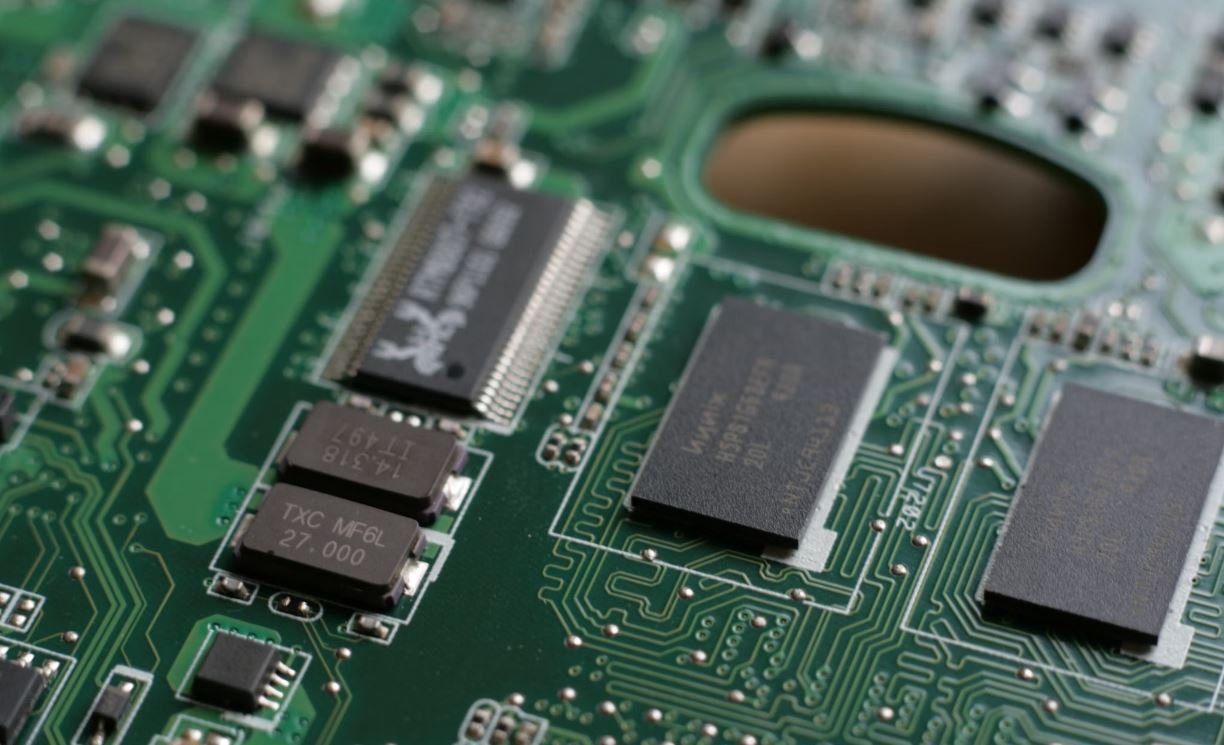Artificial Intelligence Defense
Artificial Intelligence (AI) Defense is an emerging field that focuses on harnessing the power of AI to strengthen defense and security systems. By integrating AI technologies into military and security operations, countries can enhance their capabilities in various domains and stay ahead in an increasingly complex global landscape.
Key Takeaways
- Artificial Intelligence Defense aims to integrate AI technologies into defense and security systems.
- AI can enhance military capabilities, improve decision-making processes, and automate various tasks.
- The use of AI in defense raises concerns regarding ethics, privacy, and potential AI-driven weapons.
AI provides numerous advantages in defense and security operations. It can efficiently process and analyze vast amounts of data, enabling real-time threat detection and response. AI algorithms can recognize patterns and anomalies, making it easier to identify potential threats or intrusions. Through machine learning, AI systems can continuously improve their performance based on new data and experiences. This optimization translates into more effective defense strategies and a reduced workload for human operators.
As AI technologies advance, the defense industry must ensure that ethical considerations are at the forefront of development. With AI-powered autonomous weapons, there are concerns about the potential for unintended consequences and the need for human oversight. Striking the right balance between leveraging AI for defense and maintaining ethical standards is essential.
Applications of AI in Defense
AI has diverse applications in defense and security systems, revolutionizing traditional approaches. Some prominent examples include:
- **Intelligent surveillance systems**: AI-enabled cameras and sensors can autonomously monitor and analyze large areas, alerting operators to potential threats.
- **Cybersecurity**: AI can assist in detecting and mitigating cyber threats by identifying malicious patterns in network traffic and enhancing system resilience.
- **Autonomous vehicles**: Self-driving vehicles equipped with AI systems can gather intelligence, transport supplies, and enhance logistics.
These applications showcase the versatility of AI in defense, where it can optimize operations, enhance situational awareness, and reduce the risks faced by human personnel.
AI Defense Challenges and Considerations
While AI offers tremendous opportunities in defense, certain challenges and considerations need to be addressed:
- **Ethical concerns**: The use of AI in defense raises ethical questions about the potential for autonomous weapons and the accountability of AI systems in critical decision-making.
- **Privacy and data security**: The extensive use of AI systems necessitates strict protection of sensitive data and the implementation of robust cybersecurity measures.
- **Adversarial attacks**: AI systems can be vulnerable to attacks where malicious actors exploit their vulnerabilities, leading to potentially catastrophic consequences.
AI Defense in Numbers
| Country | AI Defense Investment (2021) |
|---|---|
| United States | $9.6 billion |
| China | $4.6 billion |
| United Kingdom | $1.5 billion |
The investment in AI defense technologies underscores the importance given to this field and showcases the global competition to maintain strategic superiority.
The Future of AI Defense
Artificial Intelligence Defense is an ever-evolving field with immense potential. Future developments might include:
- **Greater automation**: AI can automate routine tasks, freeing up human operators to focus on more complex decision-making.
- **Interoperability**: Integrated AI systems across defense networks can facilitate seamless collaboration and information sharing.
- **Ethical frameworks**: The establishment of clear ethical frameworks and guidelines is crucial to ensure the responsible use of AI technologies in defense.
| AI Defense Market Value (2026) | Predicted Growth Rate (2021-2026) |
|---|---|
| $13.4 billion | 25% annually |
The future of AI defense holds immense promise, with ongoing advancements paving the way for a more secure and efficient defense landscape.

Common Misconceptions
Misconception 1: AI defense systems are invulnerable to attacks
One common misconception about artificial intelligence defense systems is that they are invulnerable to attacks. While AI systems are designed to be robust and adaptive, they are not entirely immune to breaches or manipulation. It is crucial to understand that AI is only as strong as the data it is trained on and the algorithms implemented. Here are three relevant points regarding this misconception:
- AI defense systems can still be vulnerable to new or unforeseen attack strategies.
- Malicious actors can exploit weaknesses in the algorithms or manipulate the data used for training.
- Regular updating and continuous monitoring are essential to maintain the effectiveness of AI defense systems.
Misconception 2: AI defense systems can replace human intuition
Another misconception is that AI defense systems can completely replace human intuition and decision-making in security operations. While AI can analyze vast amounts of data quickly and identify patterns, human intuition and judgment are invaluable when it comes to making complex and strategic decisions. Here are three relevant points regarding this misconception:
- Human intervention is indispensable for interpreting AI outputs and making context-specific decisions.
- AI systems can produce false positives or false negatives, which require human validation and correction.
- The combination of AI and human expertise can enhance the overall effectiveness of defense operations.
Misconception 3: AI defense systems are biased-free
There is a misconception that AI defense systems are free from biases and discrimination. However, AI systems can inherit biases from the data they are trained on and reflect the human biases present in that data. Here are three relevant points regarding this misconception:
- Biases in training data can lead to unfair and discriminatory decisions by AI systems.
- Human involvement is necessary to identify and mitigate biases in AI defense systems.
- Regular audits and diversity in the development of AI systems can help reduce biases.
Misconception 4: AI defense systems will replace human cybersecurity professionals
Some people believe that AI defense systems will entirely replace human cybersecurity professionals in the future. However, this is not the case. While AI can automate certain tasks and augment human capabilities, cybersecurity professionals are critical for managing complex security incidents, providing strategic guidance, and implementing policies and procedures. Here are three relevant points regarding this misconception:
- AI systems can help alleviate the burden on cybersecurity professionals by automating mundane and repetitive tasks.
- Human expertise is necessary to understand the broader context of security incidents and devise effective response strategies.
- Cybersecurity professionals play a vital role in continuously improving and fine-tuning AI defense systems.
Misconception 5: AI defense systems always result in job losses
There is a misconception that the adoption of AI defense systems will lead to widespread job losses in the cybersecurity industry. While AI may automate certain tasks, it also creates new opportunities and roles in the field. Here are three relevant points regarding this misconception:
- AI can free up human cybersecurity professionals to focus on more complex and strategic tasks.
- AI technologies require skilled experts to develop, maintain, and optimize them, leading to the creation of new job roles.
- The integration of AI into defense systems can boost cybersecurity capabilities, creating a demand for skilled professionals.

Artificial Intelligence Defense
Artificial intelligence (AI) has rapidly transformed the landscape of defense technology, promising innovative solutions and enhanced capabilities. This article presents a series of engaging tables that showcase intriguing aspects of AI in defense.
The Global AI Defense Market
| Region | Market Size (USD billion) |
|---|---|
| North America | 25.6 |
| Europe | 12.8 |
| Asia-Pacific | 9.4 |
| Middle East & Africa | 7.2 |
| Latin America | 3.1 |
The global AI defense market has witnessed significant growth, with North America leading the way with a market size of USD 25.6 billion. However, Europe, Asia-Pacific, the Middle East & Africa, and Latin America also contribute substantially to this rapidly expanding market.
AI-Powered Drones
| Country | Number of AI-Drones |
|---|---|
| United States | 5,500 |
| China | 4,800 |
| Israel | 1,200 |
| United Kingdom | 900 |
| France | 700 |
AI-powered drones have become game-changers in modern defense strategies. The United States leads the way with an impressive fleet of 5,500 AI-drones, closely followed by China with 4,800. Israel, the United Kingdom, and France also employ significant numbers of AI-powered drones.
AI in Cybersecurity
| Company | AI Security Products |
|---|---|
| IBM | 42 |
| Amazon | 37 |
| Microsoft | 28 |
| Cisco | 21 |
| 15 |
Leading technology companies are harnessing the power of AI to bolster cybersecurity measures. IBM offers the most AI security products with 42, followed closely by Amazon with 37. Meanwhile, Microsoft, Cisco, and Google also contribute significantly to AI-driven cybersecurity.
AI-Enabled Autonomous Vehicles
| Vehicle Manufacturer | AI-Enabled Vehicle Models |
|---|---|
| Tesla | 9 |
| GM | 6 |
| Nissan | 5 |
| Toyota | 4 |
| Ford | 3 |
AI-enabled autonomous vehicles offer tremendous potential in defense applications. Notably, Tesla leads the pack with nine AI-enabled vehicle models, followed by GM with six. Nissan, Toyota, and Ford also contribute actively to this field.
AI-Powered Military Robots
| Robot Type | Number Deployed |
|---|---|
| Exoskeletons | 4,200 |
| Unmanned Ground Vehicles | 3,700 |
| Unmanned Aerial Vehicles | 2,900 |
| Swarm Robots | 1,800 |
| Autonomous Submarines | 1,100 |
The use of AI-powered military robots is rapidly increasing across various domains. Exoskeletons are the most widely deployed with 4,200 units, followed by unmanned ground vehicles with 3,700. Unmanned aerial vehicles, swarm robots, and autonomous submarines also contribute to advancing defense capabilities.
AI in Satellites
| Satellite Operator | AI-Assisted Satellites |
|---|---|
| SpaceX | 12 |
| OneWeb | 9 |
| SES | 7 |
| Intelsat | 5 |
| Iridium | 3 |
AI-assisted satellites greatly enhance our space-based defense capabilities. Notably, SpaceX operates 12 AI-assisted satellites, followed by OneWeb with nine. SES, Intelsat, and Iridium also utilize AI technology in their satellite networks.
AI Decision-Making Systems
| Defense Organization | AI Decision-Making Systems |
|---|---|
| United States Air Force | 24 |
| China People’s Liberation Army | 19 |
| Russian Armed Forces | 16 |
| British Armed Forces | 11 |
| Israeli Defense Forces | 8 |
AI decision-making systems play a pivotal role in defense operations. The United States Air Force leads with an impressive deployment of 24 systems, followed closely by the China People’s Liberation Army with 19. The Russian Armed Forces, British Armed Forces, and Israeli Defense Forces also leverage AI technology for strategic decision-making.
AI-Powered Satellite Image Analysis
| Defense Agency | Avg. Images Analyzed (per day) |
|---|---|
| National Geospatial-Intelligence Agency (NGA) | 2.5 million |
| Indian Space Research Organisation (ISRO) | 1.8 million |
| National Reconnaissance Office (NRO) | 1.4 million |
| European Space Agency (ESA) | 1.1 million |
| Canadian Space Agency (CSA) | 900,000 |
The analysis of satellite imagery is a crucial part of defense intelligence. The National Geospatial-Intelligence Agency (NGA) analyzes an astounding 2.5 million images per day, making it the frontrunner. The Indian Space Research Organisation (ISRO), National Reconnaissance Office (NRO), European Space Agency (ESA), and Canadian Space Agency (CSA) also contribute significantly to AI-powered satellite image analysis.
AI Patent Holders in Defense
| Company/Organization | Number of AI Patents |
|---|---|
| IBM | 9,545 |
| Microsoft | 6,810 |
| 5,921 | |
| Boeing | 3,487 |
| Lockheed Martin | 2,970 |
Leading companies and organizations hold a significant number of AI patents in defense. Notably, IBM tops the list with an impressive 9,545 AI patents, followed by Microsoft with 6,810. Google, Boeing, and Lockheed Martin also contribute significantly to AI innovation in the defense sector.
Conclusion
The infusion of artificial intelligence into defense technology offers unprecedented opportunities for enhanced capabilities and innovative solutions. From AI-powered drones and military robots to satellites and cybersecurity, the tables presented above encompass various aspects of AI in defense. As this technology continues to advance, its impact on defense strategies and operations will undoubtedly be transformative.
Frequently Asked Questions
What is artificial intelligence defense?
Artificial intelligence defense refers to the use of AI technologies and techniques in the field of defense and military operations. It involves developing and utilizing AI systems to enhance various aspects of military operations, such as intelligence gathering, decision-making, surveillance, and autonomous weaponry.
How can AI be used in defense applications?
AI can be used in defense applications for a wide range of purposes. Some examples include analyzing vast amounts of data to identify patterns and detect potential threats, controlling unmanned vehicles or drones for surveillance missions, optimizing logistics and supply chains, simulating scenarios for training purposes, and developing autonomous weapons systems.
What are the benefits of using AI in defense?
Using AI in defense offers several benefits. It can help improve situational awareness, enhance decision-making capabilities, increase operational efficiency, reduce human error, and potentially save lives by automating certain tasks that may put soldiers at risk. AI technologies can also help identify and respond to emerging threats more quickly and effectively.
Are there any risks or concerns associated with AI defense systems?
Yes, there are risks and concerns associated with AI defense systems. One of the main concerns is the potential for unintended consequences or errors in the programming of autonomous systems, which could lead to unintended harm or escalation of conflicts. There are also ethical considerations regarding the use of AI in warfare, such as the potential for loss of human control over decision-making and the development of autonomous weapons with significant destructive capabilities.
How do AI defense systems impact human soldiers?
AI defense systems can have both positive and negative impacts on human soldiers. On one hand, AI technologies can free up soldiers from mundane and repetitive tasks, allowing them to focus on more critical and complex missions. AI systems can also augment soldiers’ capabilities by providing enhanced situational awareness and intelligence. However, there is also a concern that increased reliance on AI systems could potentially reduce the human decision-making role in warfare and lead to decreased human involvement on the battlefield, which raises ethical questions.
What steps are taken to ensure the security and reliability of AI defense systems?
Security and reliability are critical aspects of AI defense systems. Extensive testing and validation processes are conducted to ensure the reliability, robustness, and accuracy of AI algorithms and systems. Additionally, cybersecurity measures are implemented to protect AI systems from potential hacks or cyber attacks. Efforts are also made to ensure that AI systems are developed and used in accordance with legal and ethical frameworks to minimize potential risks.
What role does human oversight play in AI defense systems?
Human oversight is crucial in AI defense systems. While AI technologies can analyze vast amounts of data and assist in decision-making, the final decision-making authority typically rests with human operators or commanders. Human oversight helps ensure accountability, ethical considerations, and the ability to intervene or override AI systems if necessary. Human judgment is critical to assess the context and nuances of complex situations that AI systems may struggle to comprehend.
Can AI defense systems be used for offensive purposes?
Yes, AI defense systems can potentially be used for offensive purposes. While the primary focus of AI in defense is often on defensive capabilities, such as improving surveillance or detecting threats, AI systems could also be designed and deployed with offensive capabilities. This raises concerns about the ethics and potential consequences of using AI systems for offensive operations.
What are the future implications of AI in defense?
The future implications of AI in defense are vast and multifaceted. AI technologies are expected to play an increasingly significant role in defense operations, with advancements in areas such as autonomous weapons, military robotics, and cyber defense. The integration of AI with other emerging technologies like big data analytics, internet of things (IoT), and blockchain is anticipated to further revolutionize the defense sector.




